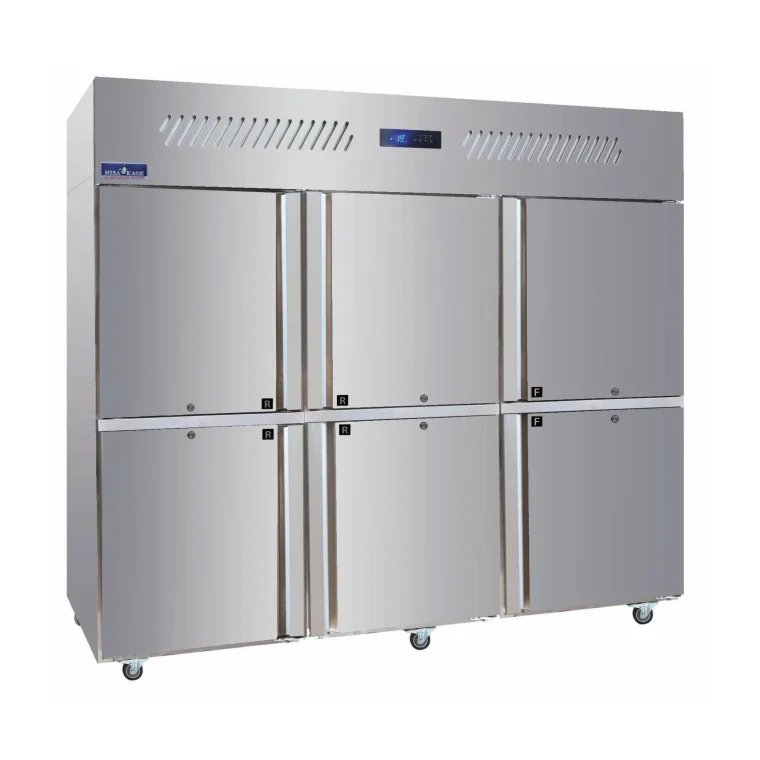- This topic is empty.
-
AuthorPosts
-
2025-07-30 at 3:22 pm #13324
In commercial food service, display, and storage settings, choosing the right refrigeration system can significantly affect product freshness, energy efficiency, and day-to-day operations. Two common options are air cooling refrigerators and traditional direct cooling refrigerators. Each type comes with its own strengths and limitations.
This article compares the two systems in detail and explores which is best suited for different business environments. We also introduce HISAKAGE REFRIGERATION EQUIPMENT CO., LTD., a trusted manufacturer of commercial refrigeration equipment known for its quality and customization capabilities.

Understanding the Two Types
Air Cooling Refrigerators, also called fan-cooled or no-frost refrigerators, use internal fans to circulate cold air evenly throughout the compartment. This helps maintain a consistent temperature and eliminates frost buildup.
Traditional Refrigerators, or direct cooling units, rely on natural convection to distribute cold air. The evaporator cools the air directly inside the compartment, which can lead to uneven temperatures and frost accumulation.
Key Differences at a Glance
1. Cooling Method
Air cooling systems rely on active air circulation via a fan, while traditional systems depend on passive airflow.2. Temperature Uniformity
Air cooling refrigerators maintain a consistent temperature throughout the cabinet. Traditional refrigerators often have hot and cold spots due to limited airflow.3. Frost Formation
Air cooling units are frost-free, reducing the need for defrosting. Traditional units may experience frost buildup, especially in high-humidity environments.4. Energy Efficiency
While direct cooling systems typically consume less energy in the short term, air cooling units often offer better efficiency over time by reducing compressor cycling and product spoilage.5. Maintenance
Air cooling units require less frequent defrosting and are easier to clean. Direct cooling systems may need more manual maintenance due to frost buildup.Which One Is Better for Commercial Use?
For most commercial applications, air cooling refrigerators provide clear advantages. They ensure uniform cooling, reduce maintenance downtime, and improve product presentation—essential benefits in high-demand environments such as:
-
Supermarkets and grocery stores
-
Restaurants and catering operations
-
Cold drink and dessert shops
-
Convenience stores and display kiosks
That said, traditional refrigerators may still be suitable for smaller-scale or budget-conscious operations where frost buildup is less of an issue.
Why Choose HISAKAGE REFRIGERATION EQUIPMENT CO., LTD.
HISAKAGE REFRIGERATION EQUIPMENT CO., LTD. is a specialized manufacturer focusing on commercial refrigeration solutions. The company offers a full line of:
-
Air cooling refrigerators
-
Commercial ice machines
-
Display cabinets for food and beverages
With a business model built around B2B customers, HISAKAGE customizes refrigeration systems based on your specific commercial needs. Whether you're outfitting a food service kitchen or designing an efficient product display, HISAKAGE delivers machines that are durable, efficient, and optimized for continuous professional use.
Final Thoughts
Choosing between an air cooling refrigerator and a traditional refrigerator comes down to your business priorities. If you need consistent cooling, minimal maintenance, and a professional presentation, air cooling is the smarter investment. For basic storage needs with minimal cost, traditional options may suffice.
http://www.hisakage.com
HISAKAGE -
-
AuthorPosts
- You must be logged in to reply to this topic.






